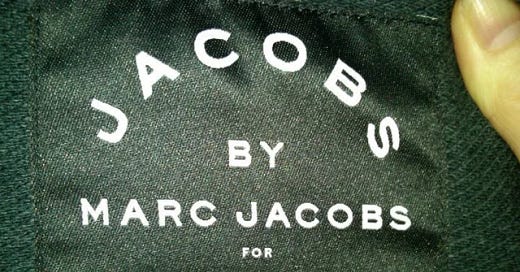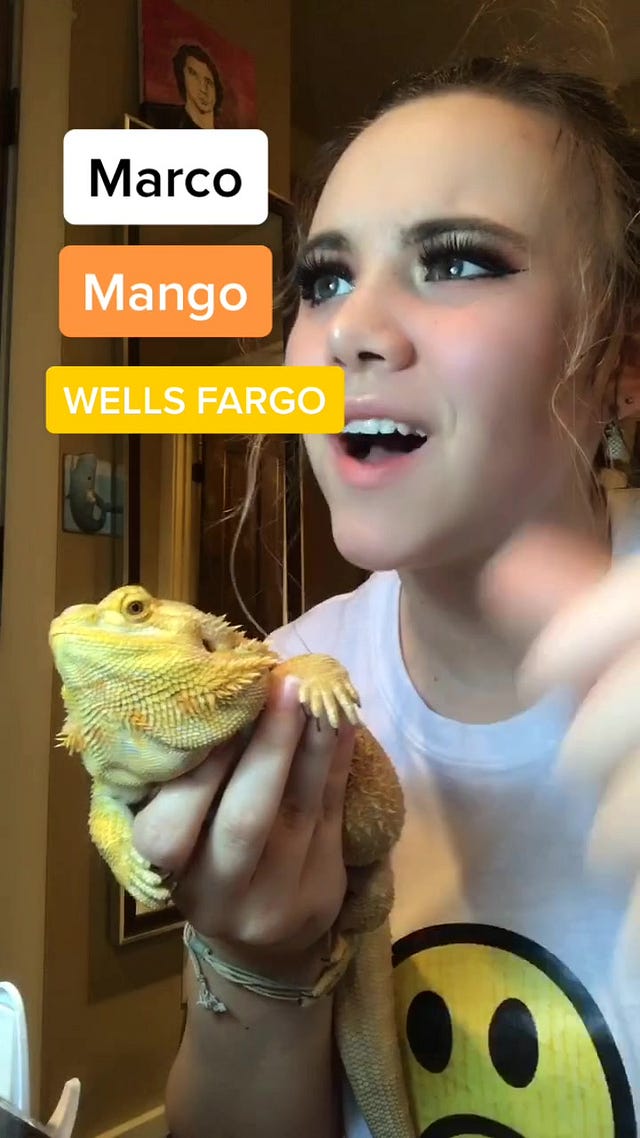Embedded is your essential guide to what’s good on the internet, written by Kate Lindsay and edited by Nick Catucci.
This newsletter™ is copyrighted to Kate Lindsay. —Kate
After JK Rowling’s support of the UK Supreme Court ruling on gender, and before the series remake hits HBO Max, the Harry Potter fandom has to figure out where they draw the line:
Last month, the creator of the viral Charli xcx “Apple” dance, Kelley Heyer, sued the online gaming platform Roblox for copyright violation after Roblox made her choreography available as an emote (an action you can have your avatar perform). While Fortnite, a similar platform, had made an agreement with the creator to do something similar, she alleges that Roblox launched their emote without finalizing a deal. The reactions to this were, surprisingly, mixed—with more people willing to stump for a corporation than I thought there would be—but something perhaps even more significant got lost in the noise: another creator alleges that Heyer actually stole the dance from her.
“How it feels to watch a certain fruit dance clearly inspired by the choreography in a viral TikTok you posted 3 days earlier !! turn into a brand, pr deals, and even a lawsuit over ‘use of choreography without permission,’” a creator with the account @studio.54 posted on April 25. In a video, posted on July 11, @studio.54 lipsyncs Charli xcx’s song while doing the “apple splitting” and “car driving” moves that Heyer employed in her first video a few days later.
After making her accusation, the creator posted follow up video suggesting that she was mostly just lamenting the fact that it’s almost random who finds fame with a dance—a coin toss between the person who posts it one day and the other person who does so a few days later. But while creative people saying “you copied me” is not exactly new, on TikTok, giving credit is not just a matter of etiquette. Intellectual property is at stake.
“IP,” like “content,” is a modern conception of artistic work, and just as it once filtered down from corporate executives to the “creatives” who make their products, it has now filtered even further down to people posting online. Twenty years or even a decade ago, the internet was far less centralized, in the primitive stages of building the bottom-up, community-based culture that apps like TikTok would operationalize. Now that internet culture is mainstream culture, virtually anyone can create a trend, but vanishingly few make a career from or even briefly monetize it.
In January 2020, a creator with the now-deleted username @itsgraciejustgracie made a video chanting her name, and soon after many others were doing the same thing with their own names, perhaps most famously in this video:
 Tiktok failed to load.
Tiktok failed to load.Enable 3rd party cookies or use another browser
It was Roman Hawke’s video that ended up getting over 60 million views and inspiring a song, by Tiagz, that same year which now has over 87 million streams on Spotify alone:
In August 2020, the original @itsgraciejustgracie made a now-deleted video similar to @studio.54’s. She started a trend, but it was someone else who got the IP. There’s a comment on Hawke’s response video that’s notable in hindsight: “I'm not sure why this generation needs to hear this, but if it's posted on the internet and is not owned with a copyright, anyone can use it.”
In 2020, Jalaiah Harmon famously finally got her flowers for creating the “Renegade.” And in 2025, people are copyrighting their ideas—or at the very least, making their ownership clear and catchy. It’s partly, I think, why everything has to have a “phrase” or “era” or “aesthetic” now—girl dinner, coastal grandmother, the “Chelsea Parke claw clip.” These words are searchable, and therefore easily traceable back to the original creator, giving them the best chance of receiving the benefits of monetization. Sure, Parke isn’t wearing her claw clip any differently than anyone else has since the ‘90s. But by popularizing the “Chelsea Parke claw clip,” she’s the one who can successfully sell claw clips with her name on them.
I don’t think it’s a coincidence we’re so fiercely protecting our intellectual property in an era when it’s harder and harder to purchase physical property. Home ownership has flatlined for Millennials and Gen Z. Owning a house satisfies our base hierarchy of needs and IP doesn’t, but IP promises a ticket to the better life that average person can no longer afford.
But just as a lucky few start to find to prosperity through IP, another technology has come along to disrupt this new American dream: AI. Not only are AI companies already blatantly scraping IP from media companies that can afford lawyers, it will soon exploit our individual creativity online. Here’s
on John Pork and the emerging Instagram Reels AI cinematic universe:As AI tools become more advanced and accessible, I think we will see more community-driven narratives. This shift could lead to more personalized and immersive storytelling, which reflects a broader range of perspectives and creativity.
It will also create an IP clusterfuck. Take the John Pork story alone. The real man who created the John Pork character initially gained traction on his account back in 2018. But it was an unaffiliated TikTok user who created the "John Pork is calling" meme, which revived the online character into the public consciousness online in 2023. From there, other random internet users created the basis for the current storyline about Pork's death…Say someone wanted to create a John Pork universe web series or movie, who owns a collective storyline generated by thousands of internet users, including many children?
So, yes, as nitpicky as it may seem, I understand why @studio.54 wants to lay claim to an apple-splitting motion. It’s not financially responsible to throw our ideas around online for free anymore, but the alternative threatens the spirit of what internet community is supposed to be about. Already, TikTok is a mess of overconsumption. There’s an oversaturation of trends and too many “creator earns commission” videos interrupting my FYP, but should people willingly forfeit creative ownership and the opportunities it may afford? Those things shouldn’t be why people create in the first place. But then, how can anyone afford to keep creating these days without it?







